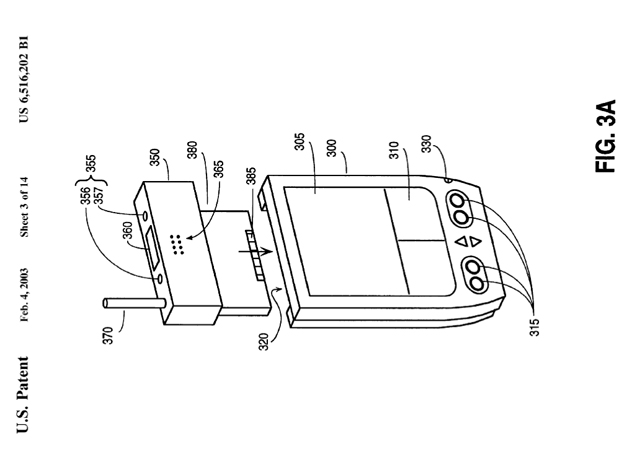Worth More Dead Than Alive: Could HP Turn a Profit on Palm’s Patents?
When Hewlett-Packard coughed up $1.2 billion for Palm last spring, the acquisition was widely viewed as a quick way for the company to capture a slice of the increasingly important mobile device market.
And while the launch of the Veer and the TouchPad proved that to be true, there was another reason as well: Palm’s intellectual property.
As former HP CEO Mark Hurd explained a few months after the acquisition: “We didn’t buy Palm to be in the smartphone business … we bought it for the IP.”
So, now that HP is getting out of the smartphone business and trying to figure out just what to do with the mobile OS it was once so excited about, what’s going to happen to that IP that Hurd was so hot on?
That’s unclear. Current HP CEO Léo Apotheker said Thursday that the company is considering all its strategic options. But, given the current environment, selling off the Palm patent portfolio is surely at the top of the list.
Consider: Nortel’s portfolio of more than 6,000 wireless patents recently sold for $4.5 billion, and earlier this week Google ponied up $12.5 billion for Motorola Mobility, citing the company’s patent portfolio as a key reason for the acquisition.
With that kind of money being thrown around for wireless IP, a Palm patent sale could be an easy way for HP to “extract value from webOS,” as Apotheker said.
As a mobile computing pioneer, Palm brought a strong patent portfolio to HP (among them one that seems to describe the smartphone itself: “Integrated Handheld Computing and Telephony System and Services”).
Anthony Mazzarella, CEO of PatentVest, once said the value of Palm’s IP was “along the same order of magnitude as Apple’s.”
Indeed, when Palm and Apple were first rubbing shoulders in the smartphone space, Palm was quick to rebut Apple’s smack talking by brandishing its IP. “Palm has a long history of innovation that is reflected in our products and robust patent portfolio and we have long been recognized for our fundamental patents in the mobile space,” the company said at the time. “If faced with legal action, we are confident that we have the tools necessary to defend ourselves.”
Notably, Apple never sued Palm, despite a long-running call-and-response spat over the Pre’s iTunes syncing feature. And the company’s hesitation to take its smaller rival to court could be viewed as an acknowledgement of the potency of Palm’s patents.
That said, if Palm’s IP is truly valuable, why didn’t the company use it to squeeze licensing fees out of others when it desperately needed the money? The high costs of litigation, perhaps?
In any event, it’s certainly possible that HP could turn a profit on Palm yet, via its patents. Although it’s difficult to gauge the value of the company’s IP, it is clear that mobile patents are worth a great deal these days.
Stanford Law School Fellow Stuart Soffer estimates that the patents sold in the Nortel auction and Google’s acquisition of Motorola Mobility are worth between $736,000 and $750,000 apiece.
If Palm’s patents are as fundamental to the mobile space as the company once claimed, HP could fetch a good price from the companies slugging it out in the smartphone space right now.
What a sad fate for Palm, though — a little like gutting a broken-down historic house to salvage the pricey copper pipes.
Related posts
- Hewlett-Packard Says Goodbye to PCs, webOS
- HP Pulls Plug on webOS Hardware, Leaves OS Future in Doubt
- HP And webOS: But They Seemed So Happy Together!
- Liveblogging HP’s “Everything Including the Kitchen Sink” Conference Call
- HP’s Apotheker: We Struck Out with WebOS, but Maybe Someone Else Wants a Swing?
- Viral Video: Like Palm’s Creepy Naked Lady, TouchPad’s Floating Celeb Heads Get the HP Boot
- Licensing webOS May Not Be Much of an Option for HP
- Hewlett-Packard’s PC Business: What Happens Next?
- Worth More Dead Than Alive: Could HP Turn a Profit on Palm’s Patents?
- With HP’s Raising of the World’s Biggest White Flag, Will Jon Rubinstein and Todd Bradley Surrender Too?










